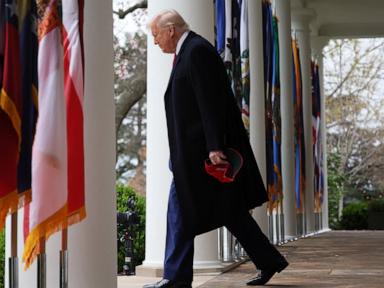Something about Washington loves a good scandal: big or small, true or false, verifiable or unreliable. Like rumors, scandals come in all shapes and sizes. Like rumors, most have some basis in fact, but then increasingly transmogrify by sprouting new appendages, all depending on who is telling the tale.
At the first scent of scandal, the media buzzards start circling and the political grackles start cackling. It’s an almost electric phenomenon that excites the city as rumors grow and take on new life.
This whole phenomenon surfaced again recently with, “Signalgate” after an internal executive branch national security conversation among principals over the commercial messaging app, Signal, came to light when a journalist was inadvertently included on the thread. The transcript included details on when airstrikes on Houthi militants in Yemen would occur, and what type of aircraft and munitions were being used.
The suffix “-gate” has often been appended to scandals ever since the Nixon-era Watergate scandal of the 1970s. (The Watergate was the name of the office complex housing Democratic headquarters where President Richard Nixon’s operatives, aka the “plumbers,” were planting listening devices.)
The foregoing light treatment of the term "scandal" is not meant to diminish the often serious nature of scandals that do occur. Rather it is intended to caution the curious to tread carefully in analyzing scandals.
In the case of Signalgate, three disturbing conclusions emerge. First, if an adversary had had access to the detailed action plans in the conversation in advance of the actual strikes, the lives of American service personnel involved would surely have been jeopardized. Second, the confidence of our European allies in our commitment to that continent was surely undermined by the tone and slant of the conversation. And third, Americans' faith in the competence of our national security apparatus has been shaken considerably.
Former New Jersey Gov. Chris Christie (R) observed last Sunday that the administration officials participating in the Signal conversation have all been singing from the same hymnal that President Trump has been using since his days as a real estate tycoon. It all gets down to two words, Christie said: deny and deflect. Deny the incident ever happened or is even significant. If that doesn’t work, deflect attention to another topic or person.
The denial is evident in the group’s unified chant that vital classified information was not disclosed, despite outside intelligence experts’ consensus that the exchange should have been labeled, “top secret.”
Those caught in a scandal often blame the messenger for the message. In this instance it is Atlantic Editor-in-Chief Jeffrey Goldberg, into whose lap the unsolicited thread was dropped. He has become the target of the administration's defenders. The president’s press secretary accused him of perpetrating a “hoax,” and the president dismissed him as a “sleazebag.”
Never mind that Goldberg ...

























